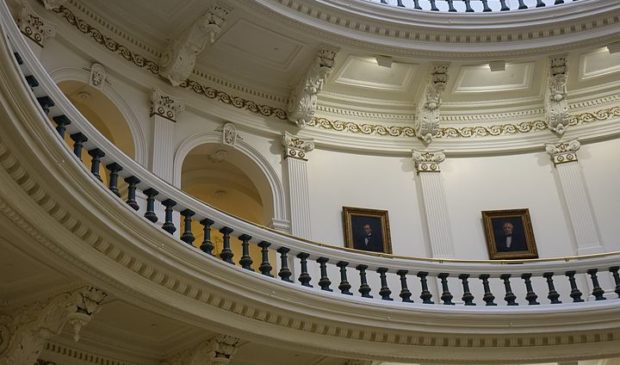Hinojosa tries again for inclusionary zoning
Tuesday, December 1, 2020 by
Jo Clifton State Rep. Gina Hinojosa, D-Austin, is trying once again to repeal the state law that prevents Texas cities from using an affordable housing tool known as inclusionary zoning. Inclusionary zoning programs allow cities to require developers to provide housing for low-income residents when they request zoning changes. Only Texas, Arizona and Tennessee currently prohibit inclusionary zoning.
Hinojosa filed a bill last year to repeal the state ban. However, the bill was filed in March and never got a hearing. While the bill’s chances never seemed particularly good with a conservative Legislature, at least this time the bill was filed early. City Council Member Leslie Pool, the lead sponsor on a resolution on this week’s agenda supporting Hinojosa’s bill, said Monday she and her co-sponsors are supporting the push to allow inclusionary zoning as “one of the more potent tools” the city can use to gain more affordable housing in Austin.
Cicely Kay, Hinojosa’s legislative director, told the Austin Monitor the city approached Hinojosa about carrying the legislation again. She said, “The bill would simply strike the language in state statute that does not allow cities” to require affordable housing units. The language was added to state law in 2005.
Pool said the money from the 2018 affordable housing bond would go further and more affordable housing could be built if the city could use inclusionary zoning. “I think it would balance the scales,” she said.
However, Pool acknowledged that the failure to elect more Democrats to the Texas House might mean that the legislation won’t pass this time either. She pointed out that while getting a rail system for Austin took several tries, it eventually passed. If the Legislature does not approve eliminating the ban on inclusionary zoning this year, she said they will try again.
Council Member Greg Casar, a co-sponsor of the resolution, noted that the city regularly uses its density bonus program with zoning approvals. In that case, the developer agrees with a private group, such as a nonprofit development corporation, to provide a certain amount of housing for people who cannot afford market rates.
In April, Council approved rezoning of property in the Blackland community of East Austin. Because the city cannot require developers to offer affordable housing, the developer signed a contract with the Blackland Community Development Corporation to purchase one unit for a very low price. The corporation will then rent or sell the unit to a family living at 60 percent of the local median family income. According to Glen Coleman, who represented the developer Anmol Mehra, the Blackland CDC is funded through grants and money from different government agencies, including the city.
Erica Leak, development officer for the Housing and Planning Department, explained that because cities are not able to use inclusionary zoning, the city has developed a number of tools to address affordability.
“In Texas, because we don’t have access to (inclusionary zoning), it means that the main way we are able to get income-restricted housing is to subsidize those units.” She described inclusionary zoning as “an additional tool we would love to have to help address affordability.”
Leak also noted that developers are able to use bonus-based programs, such as planned unit developments, but those programs are only available in about 4 percent of the city. Places that have such bonus programs include the West Campus neighborhood and the Rainey Street neighborhood downtown.
“In those places,” she noted, “if someone chooses to participate and wants to build something other than what’s allowed by their base entitlement, they have to provide a community benefit.” That means providing affordable housing or paying a fee-in-lieu.
The Austin Monitor’s work is made possible by donations from the community. Though our reporting covers donors from time to time, we are careful to keep business and editorial efforts separate while maintaining transparency. A complete list of donors is available here, and our code of ethics is explained here.
You're a community leader
And we’re honored you look to us for serious, in-depth news. You know a strong community needs local and dedicated watchdog reporting. We’re here for you and that won’t change. Now will you take the powerful next step and support our nonprofit news organization?











